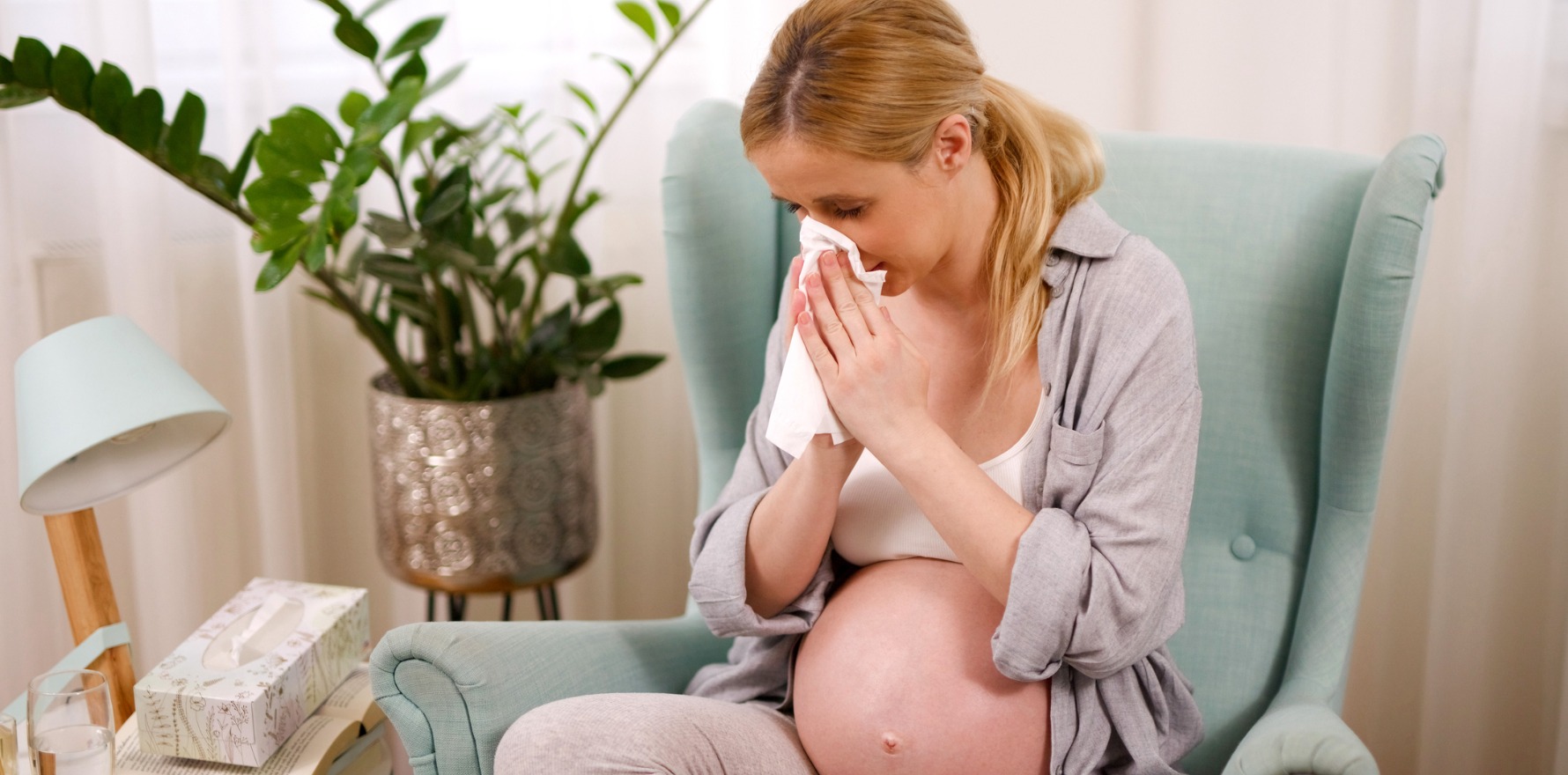The odds of having a baby with cardiovascular anomalies is three times higher for women hospitalised for respiratory illness.
Women who have an acute respiratory infection during the first trimester of pregnancy have significantly higher odds of having a baby with cardiovascular anomalies, Australian data suggests.
“Pregnant women should be aware of this risk and to use vaccines and other preventive measures to protect from respiratory infections during pregnancy,” the researchers wrote in BMC Pregnancy and Childbirth.
The study analysed data more than 1.4 million NSW births from 2001 to 2016 – before covid – which included information on confirmed respiratory infections and congenital anomalies.
Of the 1547 mothers who were hospitalised for severe respiratory infections during the first trimester of pregnancy, seven – or 0.45% – had babies with heart and circulation issues. This was a significant increase compared with the baseline rate of 0.12% among mothers who had no recorded severe respiratory infections.
After adjusting for factors including maternal age, smoking during pregnancy, socioeconomic status, previous pregnancies, country of birth, hospital of delivery, Indigenous status, hypertension and diabetes, the odds of a congenital anomaly were 3.6 higher.
The researchers said the reasons for the link were not clear but may be due to infectious diseases passing to the baby or the effect of medications.
“Congenital anomalies after influenza and other respiratory infections may be due to multiple direct or indirect pathways, including transplacental infection of the foetus or the indirect effect of fever induced toxic metabolites or drugs used to treat these infections,” they said.
Lead author medical epidemiologist Dr Abrar Chughtai said some infectious diseases may pass directly to the baby across the placenta, leading to problems in development.
“Another possible mechanism could be fever, because generally most severe infections, if you have an infection, generally women will have fever as well,” he told TMR.
“In febrile illness there are a lot of changes in the body, like toxic metabolites and other inflammatory mediators which are produced.”
Dr Chughtai said those metabolites could cross the placenta and affect the baby.
“High fever may also impair protein synthesis and causes cell death, resulting in congenital anomalies.”
Dr Chughtai said while it was difficult to avoid respiratory infections, women could try to avoid large gatherings and contact with sick people during the first trimester of pregnancy.
He added that it was important for women to get the influenza vaccination during pregnancy, and pre-pregnancy planning was important for those vaccines that couldn’t be administered during pregnancy.
Paediatric respiratory physician Professor Sarath Ranganathan from Murdoch Children’s Research Institute said the study reinforced previous findings linking infections in pregnancy to later issues with the child.
Victoria research had shown that babies who had more infections and inflammation during the first year of life had physical changes that in adulthood were known to be linked to cardiovascular disease, he said.
The researchers noted that the study only included live births and stillbirths of at least 20 weeks gestation or at least 400g, and did not include termination of pregnancies for fetal anomalies or spontaneous losses before 20 weeks. That may have resulted in underreporting of congenital anomalies, they said.
“Therefore, this study would miss certain severe anomalies where there is a high rate of pregnancy termination,” the authors said.
Professor Ranganathan said that while there was some “biological plausibility”, this paper wasn’t proof of a causal link between respiratory infection in the first trimester and cardiac issues in the child.
“It may be that there was something in the mums that predisposed them to severe infections that also predisposed the fetus to develop problems as well. So there might be something before infections, landing you in hospital.
“We don’t really know the causality, but it certainly does seem to be an important link.”
Professor Ranganathan said maintaining good immunity by getting enough sleep and avoiding smoking tobacco or vaping could reduce the risk of respiratory infections.
While vaping was not as harmful as smoking, vaping affected the hair-like cells in the lungs that removed particles and bacteria from the airways, he said.
“Breathing any gases other than air isn’t good for the lungs. If you affect those hair cells, then you’re much more predisposed to infections.
“Vaping is definitely not good for you and anyone who is contemplating pregnancy should avoid both smoking and vaping.”
The study also did not have data on which medications women took to treat their severe respiratory infections. And it only included major congenital and cardiovascular anomalies, but not congenital anomalies in other organs.
The study also did not include data on fever, nutritional deficiencies, alcohol use, medical treatment history or vaccination.


